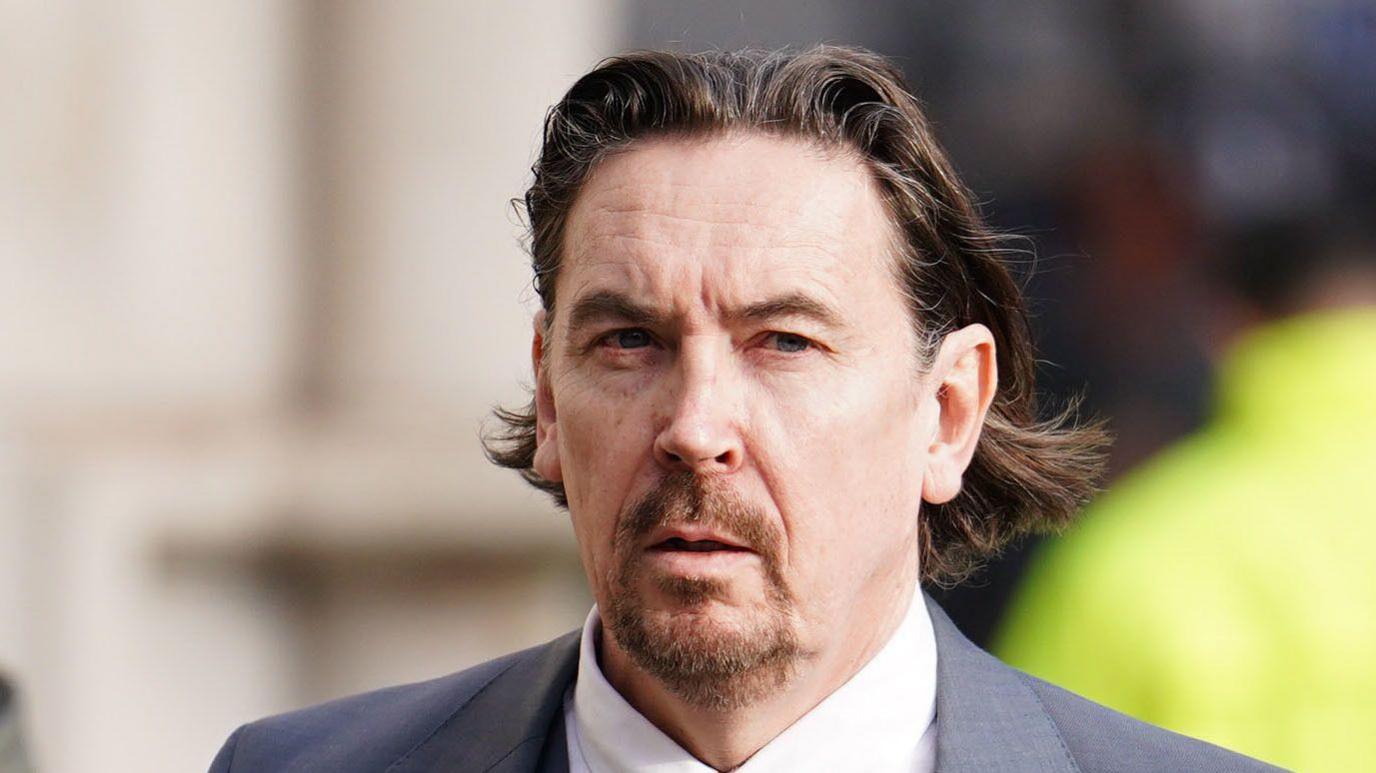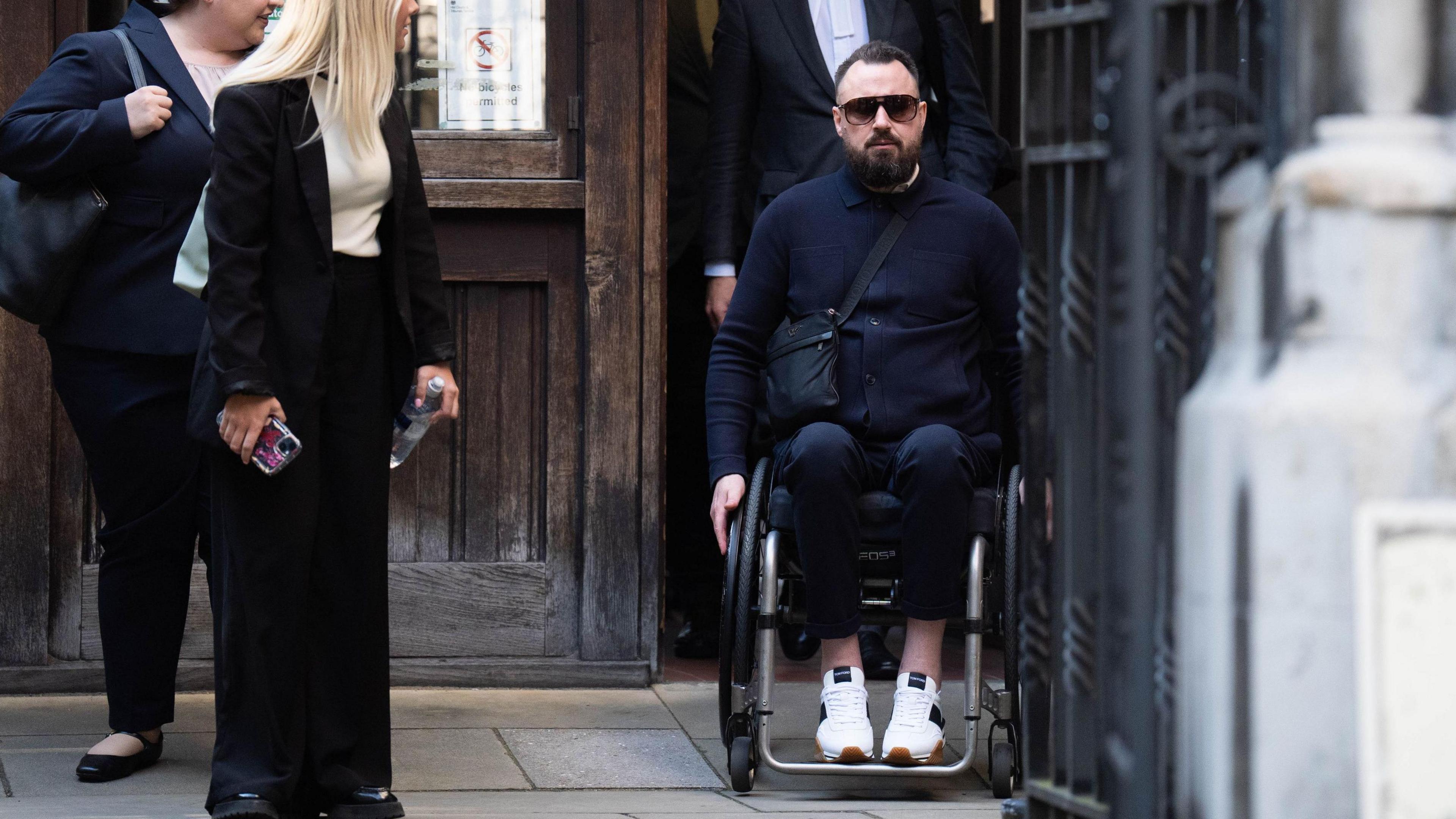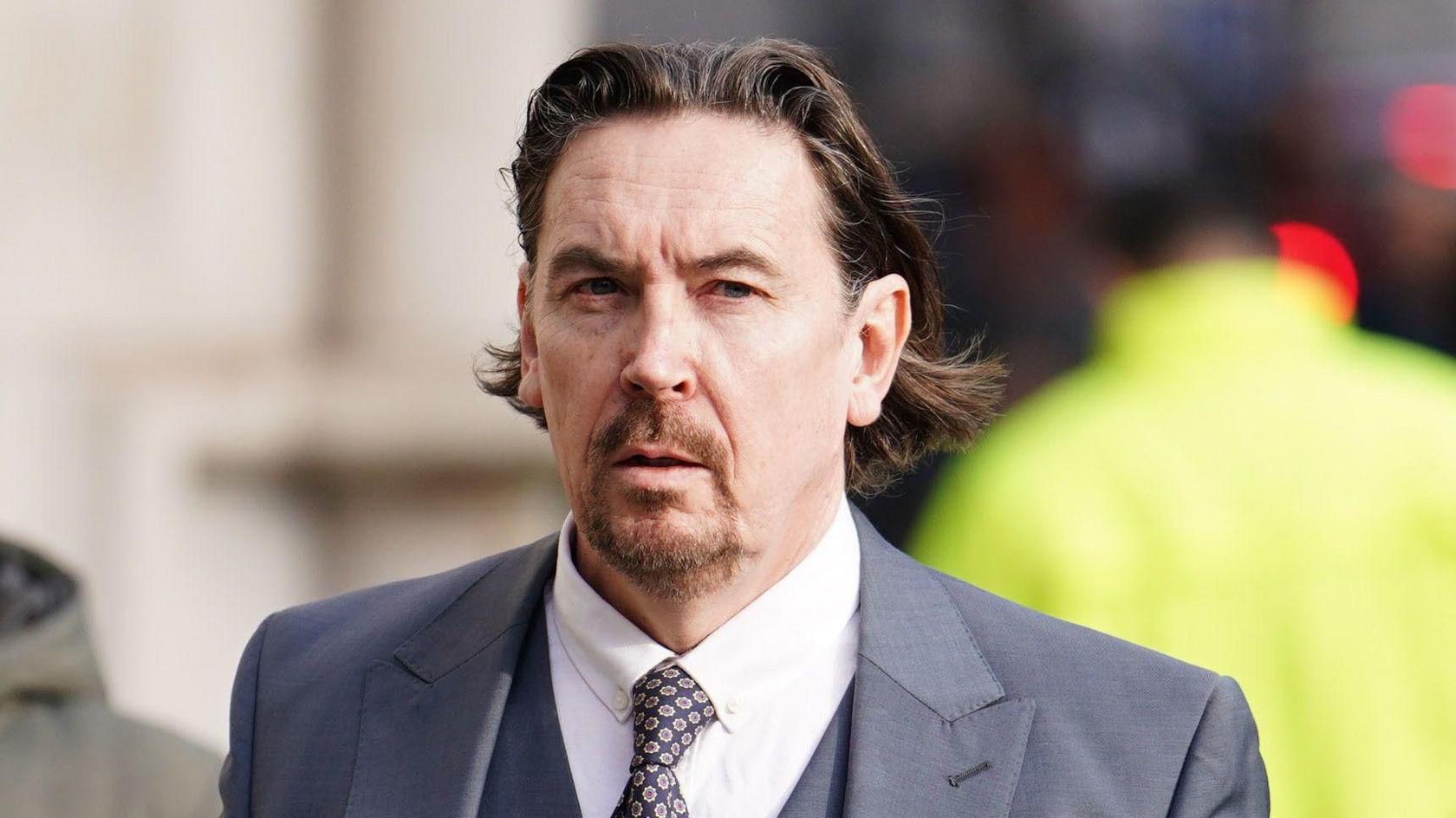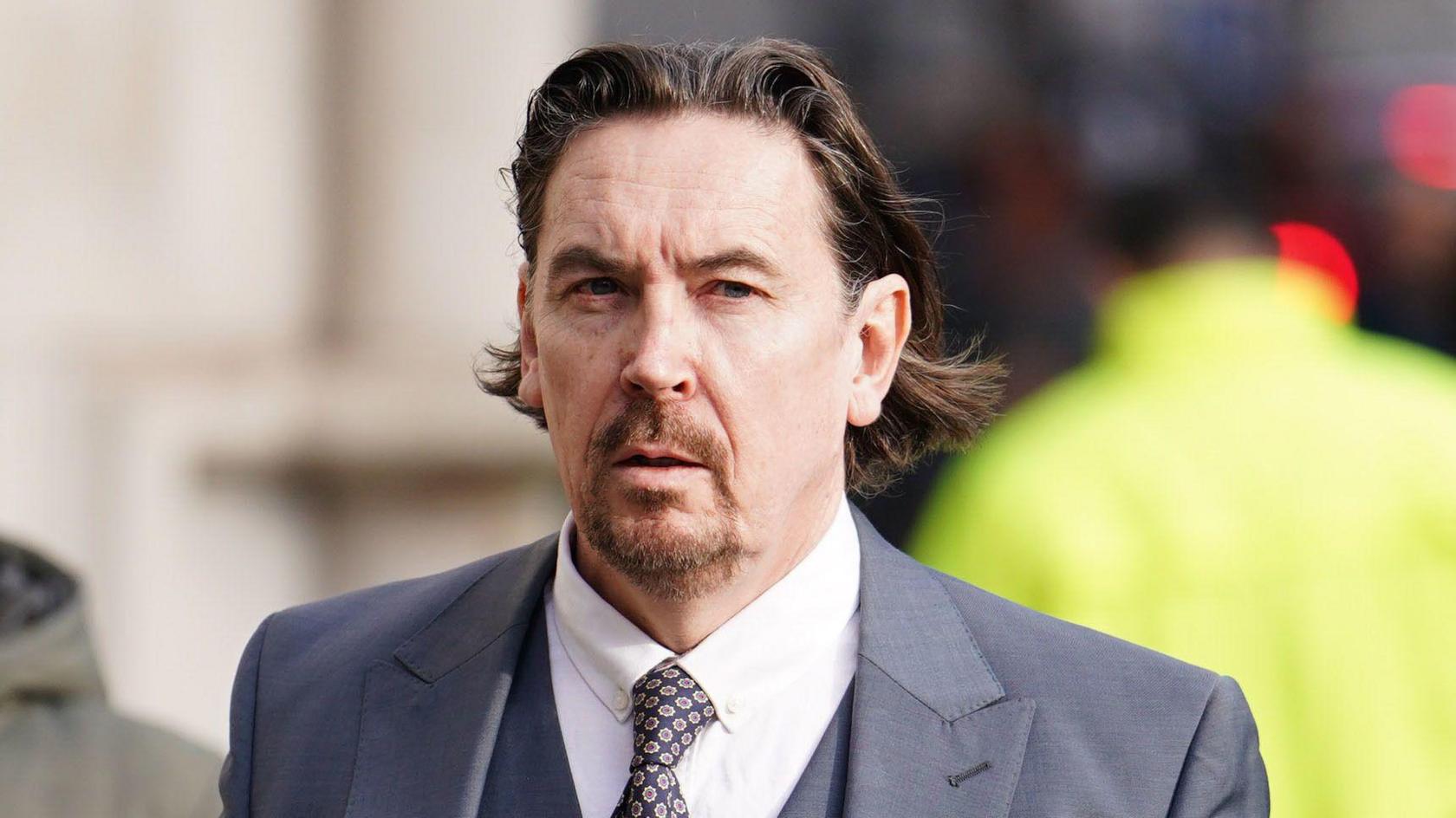Conspiracist tells court 'no one injured' in arena attack

Richard Hall has repeated claims the bombing was a hoax to the High Court
- Published
A self-described journalist who claims the Manchester Arena attack was faked has told the High Court he still maintains the bombing was staged.
Richard Hall is being sued in a civil trial by attack survivors Martin Hibbert and his daughter Eve, who were severely injured in the 2017 blast.
The former TV producer told the court he believed there "was no bomb", and "no one was genuinely injured in the attack" in which twenty-two people died.
The Hibberts have taken legal action against him for harassment and data protection.

Martin Hibbert and his daughter Eve have taken Mr Hall to court for harassment
The pair were at the Ariana Grande concert on 22 May 2017 when the bomb went off.
Mr Hibbert sustained a spinal cord injury which left him paralysed, and Miss Hibbert suffered a "catastrophic" brain injury.
Their action against Mr Hall relates to several videos and a book where he claims the bombing was a "hoax", as well as "secretly filming" Miss Hibbert and her mother at their house.
Mr Hall, giving evidence on the third day of the trial, said he worked as a "fully independent investigative journalist" since 2015 after a career as an engineer and television producer.
He told the court: "There was no bomb in that room or genuinely injured people.
“The primary evidence shows there was no bomb in that room that exploded."
Mr Hall later said "millions of people have bought a lie" about the attack.
'Conjecture'
Mr Hall claimed a video was taken minutes after the blast, showing no damage to the building or broken glass.
He told the court there was "no shrapnel or injuries visible", and the number of people in the room "seemed far lower than officially claimed".
Mr Hall claimed there was no sign of people "rushing to attend the dead or injured", or any other activity "consistent with an extremely serious major incident having just occurred".
Jonathan Price, representing the Hibberts, asked Mr Hall why he would not "just believe" the family about the incident.
"Because there is no evidence to show any of their claims," Mr Hall said.
"I'm presenting the evidence and letting people decide for themselves," he later said, adding his statements were "my opinion based on what I see".
The barrister said: "If it is true, and that is what they have been through, would you feel any compassion towards them?"
"Well, of course, but it is not true," Mr Hall said, adding: "I feel compassion to anyone who suffers a life-changing injury which they clearly have."
"Of course they do have life-changing injuries but I don't accept that it happened at 22:21 BST in the Manchester Arena."
The barrister asked Mr Hall why he believed it was in the public interest to feature the Hibberts in his work.
Mr Hall said there were "many statements in the media" but primary evidence "completely contradicted it", adding it "in the public interest to explore those witnesses".
Mr Price suggested Mr Hall's work was "not rigorous journalism" and "nothing but conjecture".
Mr Hall described his book and films in written evidence as featuring "nothing more than honest reporting and opinion".
The trial continues.
Listen to the best of BBC Radio Manchester on Sounds and follow BBC Manchester on Facebook, external, X, external, and Instagram, external. You can also send story ideas to northwest.newsonline@bbc.co.uk, external
Related topics
- Published23 July 2024

- Published22 July 2024
